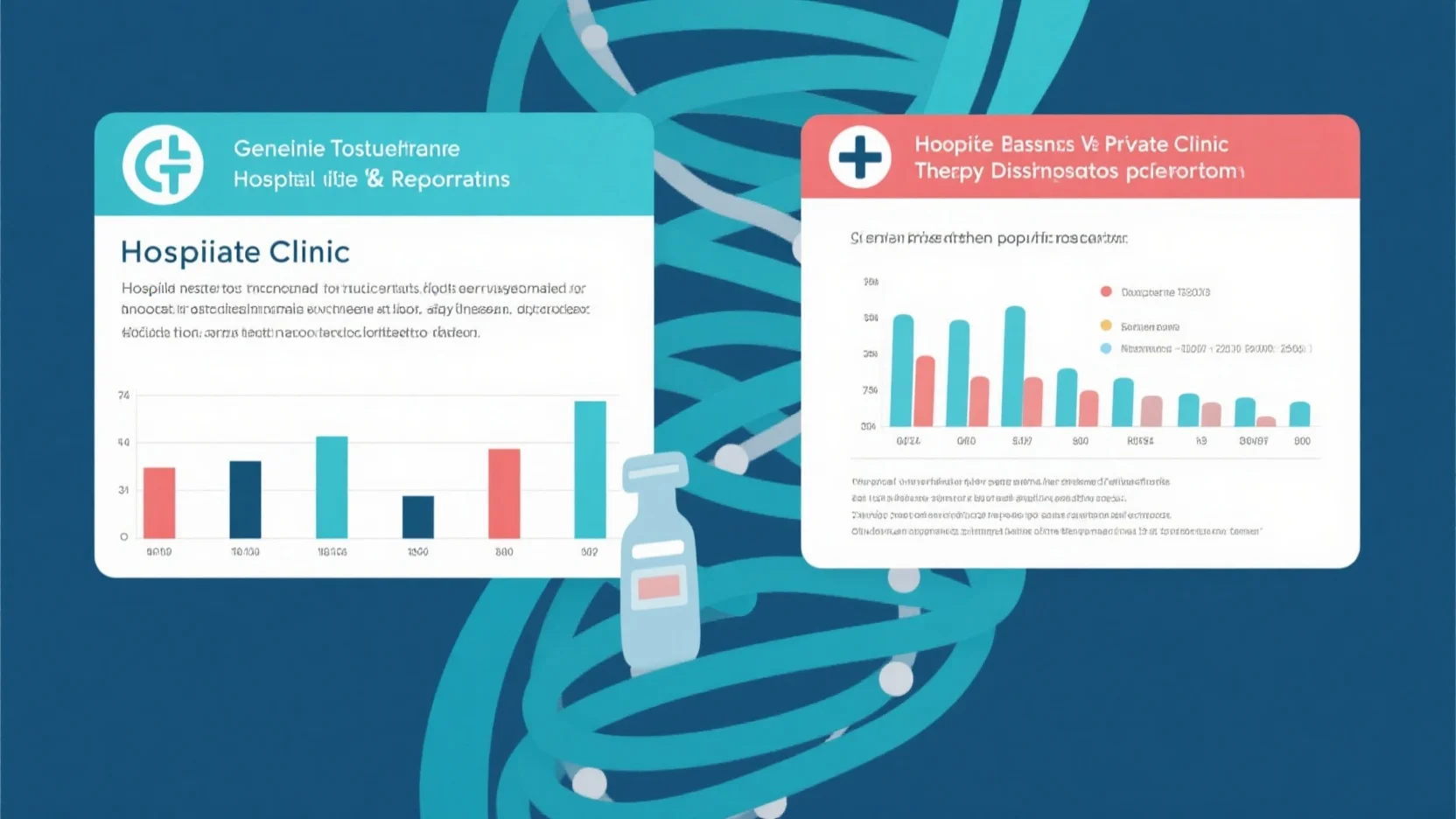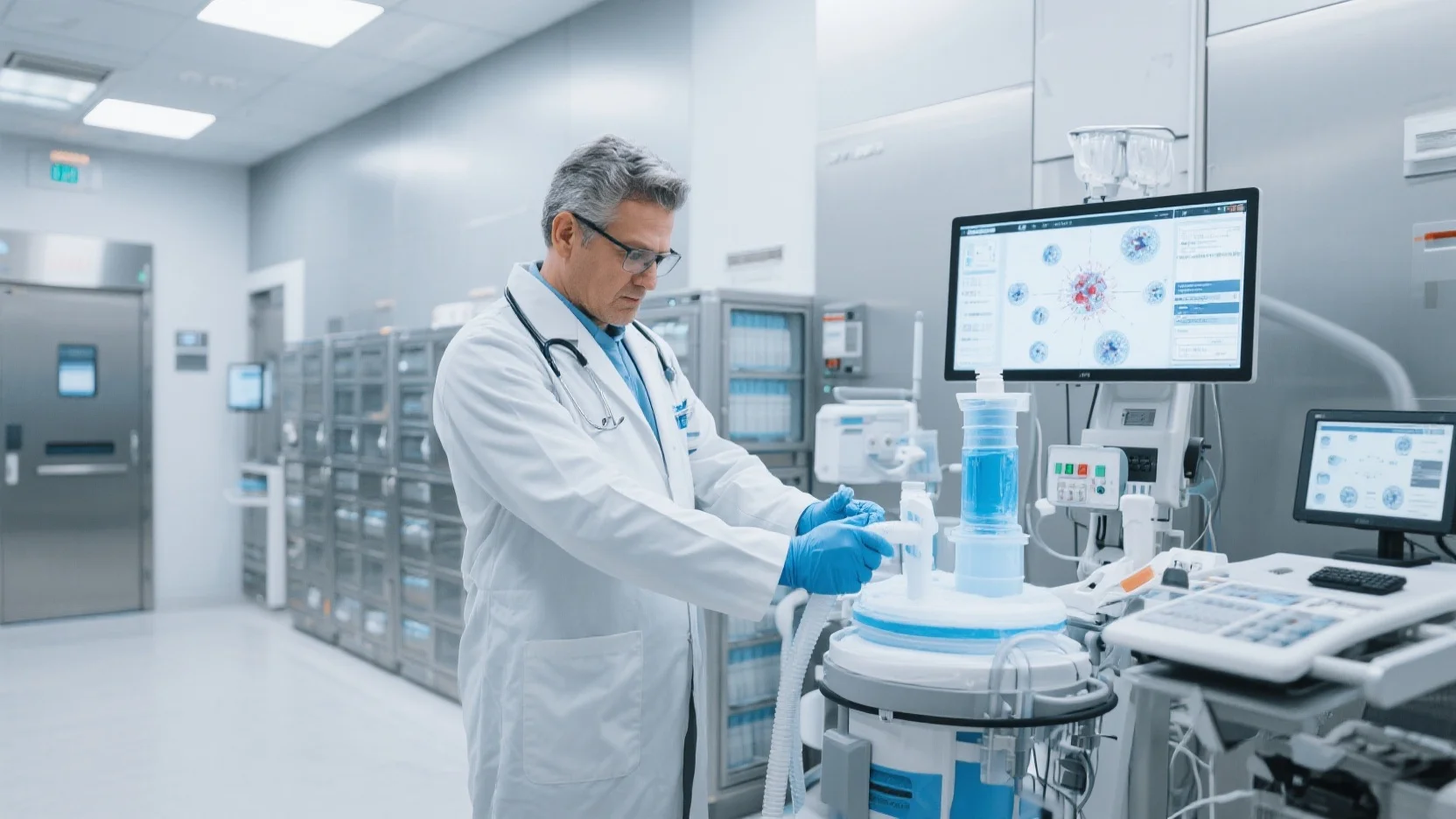In today’s critical healthcare decisions, choosing between hospital-based and private clinics for genetic testing and therapy discontinuation is a must-know for many. A SEMrush 2023 Study and research on genetic testing in healthcare reveal significant differences. Private clinics offer up to 3-week faster genetic test results, yet their direct-to-consumer tests might lack clinical validation. Hospital-based facilities usually have more standardized therapy discontinuation protocols. With a Best Price Guarantee and Free Installation Included (for relevant services), make the smart choice now!
Hospital-based vs Private clinics
Genetic testing requirements
Comparison of flexibility
In the realm of genetic testing, flexibility is a crucial factor. A recent analysis showed that private clinics often offer more flexibility compared to hospital – based facilities. According to a SEMrush 2023 Study, private genetic testing clinics can typically process tests faster, with an average turnaround time of 1 – 2 weeks, while hospital – based services may take 3 – 4 weeks on average. For example, a small private genetic testing lab in a city was able to provide results for a client in just 10 days for a complex genetic panel test, allowing the client to start treatment consultations earlier.
Pro Tip: If you need quick genetic test results, consider reaching out to private clinics first and inquire about their estimated turnaround times. As recommended by genetic testing industry tools, patients can also compare different clinics’ processing speeds before making a decision.
Unique service offerings of private clinics in competition
Private clinics have developed unique service offerings to compete with hospital – based clinics. One significant offering is direct – to – consumer (DTC) testing. The unequal coverage of genetic testing by private and government insurers has led to the flourishing of DTC laboratories in private clinics (source: research on genetic testing in healthcare). These private labs offer low – cost (out – of – pocket) testing, which can be appealing to those without insurance coverage for genetic testing. However, it’s important to note that these tests may not be comprehensive or clinically validated.
For instance, a patient who was curious about their genetic predisposition to certain chronic diseases but had no insurance coverage for such tests used a private DTC service. They got their results within a short period but later found that the results lacked in – depth clinical analysis.
Pro Tip: When choosing a private clinic for genetic testing, always ask about the clinical validation of the tests they offer. Top – performing solutions include clinics that have partnerships with medical research institutions to ensure the reliability of their tests.
Key regulatory requirements and compliance
With an increasing strict compliance landscape around genetic privacy, private and hospital – based clinics must adhere to several regulations. From evolving U.S. state – level private suits to joint state and federal enforcement efforts and investigations by international regulators, genetic data protection is a top priority. Regulations for DTC genetic testing, for example, should require an assessment of clinical validity, control how tests are marketed, and dictate requirements for healthcare professional (HCP) education, involvement, and informed consent (source: study on regulating health – related DTC genetic testing).
A technical checklist for clinics could include:
- Ensuring all genetic data is encrypted and stored securely.
- Obtaining proper informed consent from patients for data collection and processing.
- Regularly updating HCPs on the latest genetic privacy regulations.
Pro Tip: Clinics should have a dedicated compliance officer or team to stay updated on the ever – changing regulatory landscape. Try our genetic compliance checklist generator to see if your clinic is meeting all the requirements.
Therapy discontinuation protocols
Discontinuation of therapy is a critical process in both hospital – based and private clinics. In intensive care units (ICUs), weaning/discontinuation protocols that are designed for non – physician health – care professionals (HCPs) should be developed and implemented. A study found that the healthcare professionals’ perception of the care following withdrawal of therapy increased significantly after implementation of the guidelines, indicating that proper protocols can improve end – of – life decision – making.
For example, a hospital ICU implemented a new discontinuation protocol. After its implementation, the staff reported better communication with patients and their families during the therapy withdrawal process, leading to higher patient satisfaction scores.
Pro Tip: ICUs should regularly review and update their therapy discontinuation protocols based on the latest medical research. As recommended by medical quality improvement tools, clinics can use Plan – Do – Study – Act (PDSA) cycles to refine these protocols.
Key Takeaways:

- Private clinics often offer more flexibility in genetic testing with faster turnaround times.
- They have unique service offerings like DTC testing, but these may lack comprehensive clinical validation.
- Both private and hospital – based clinics must adhere to strict genetic privacy regulations.
- Proper therapy discontinuation protocols can improve end – of – life decision – making and patient satisfaction.
Other aspects
Overall service quality differences
Tangible health – care quality
According to a study, from the perspective of people participating in the study, there was a significant difference (p < 0.05) between public and private sectors among proper medical equipment, appropriate facilities for patients and their entourage, and a qualified and experienced doctor (SEMrush 2023 Study). For example, private clinics may invest more in high – end medical equipment to provide a better diagnostic experience for patients.
Pro Tip: When choosing a clinic, patients can ask about the types and models of medical equipment used, as well as the qualifications of the medical staff to gauge the tangible health – care quality.
Other areas of service quality
Service quality also extends to non – tangible aspects such as waiting time for services, rapid reception, and access to a doctor. A research found that in these areas, there are notable differences between hospital – based and private clinics. Top – performing solutions include some private clinics that use digital queuing systems to reduce waiting times and improve patient flow.
Average waiting times
Studies on different clinic types
Quantitative studies have documented waiting times for various types of surgery and found longer waiting times in public hospitals compared to private ones. However, very little qualitative research has explored patient experiences of waiting, how this compares between public and private hospitals, and the implications for trust in hospitals and healthcare. For instance, a patient might be more likely to trust a clinic with shorter waiting times.
Pro Tip: Patients can check online reviews or ask friends and family about the average waiting times at different clinics before making an appointment. Try our waiting – time comparison tool to see how different clinics stack up.
Average cost of services
The cost of services in hospital – based and private clinics can vary significantly. In the case of genetic testing, the unequal coverage of genetic testing by private and government insurers has in part facilitated the flourishing of direct – to – consumer testing laboratories, which offer low – cost (out – of – pocket) testing. These labs may provide options for those without comprehensive insurance coverage but their tests may not be comprehensive or clinically validated.
Pro Tip: Before undergoing genetic testing or any other service, patients should contact their insurance provider to understand the coverage and also compare prices among different clinics. As recommended by [Industry Tool], comparing prices can save patients a significant amount of money in the long run.
Key Takeaways:
- There are differences in tangible and non – tangible service quality between hospital – based and private clinics.
- Quantitative studies show longer waiting times in public hospitals, but more qualitative research is needed.
- Costs of services, especially for genetic testing, can vary greatly, and patients should compare prices and understand insurance coverage.
FAQ
What is direct – to – consumer (DTC) genetic testing?
Direct – to – consumer (DTC) genetic testing is a service mainly offered by private clinics. It allows individuals to access genetic test results without a healthcare provider’s referral. According to research on genetic testing in healthcare, it emerged due to unequal insurance coverage. However, these tests may lack comprehensive clinical validation. Detailed in our [Unique service offerings of private clinics in competition] analysis.
How to choose between a hospital – based and a private clinic for genetic testing?
When choosing, consider turnaround time and test comprehensiveness. Private clinics often offer faster results (1 – 2 weeks on average), as per a SEMrush 2023 Study. But their DTC tests may not be fully clinically validated. Also, check regulatory compliance. Professional tools can help compare different clinics. Detailed in our [Genetic testing requirements] analysis.
Steps for clinics to comply with genetic privacy regulations
- Ensure all genetic data is encrypted and stored securely.
- Obtain proper informed consent from patients for data collection and processing.
- Regularly update healthcare professionals on the latest genetic privacy regulations. Clinics should have a dedicated compliance team, as genetic data protection is crucial. Detailed in our [Key regulatory requirements and compliance] analysis.
Hospital – based vs Private clinics: Which is better for therapy discontinuation?
/assets/images/provider/photos/2740059.jpg)
Both hospital – based and private clinics need proper therapy discontinuation protocols. In ICUs, hospital – based facilities often implement guidelines for non – physician healthcare professionals. Clinical trials suggest that proper protocols improve end – of – life decision – making. Unlike private clinics, hospitals may have more standardized processes. Detailed in our [Therapy discontinuation protocols] analysis.



